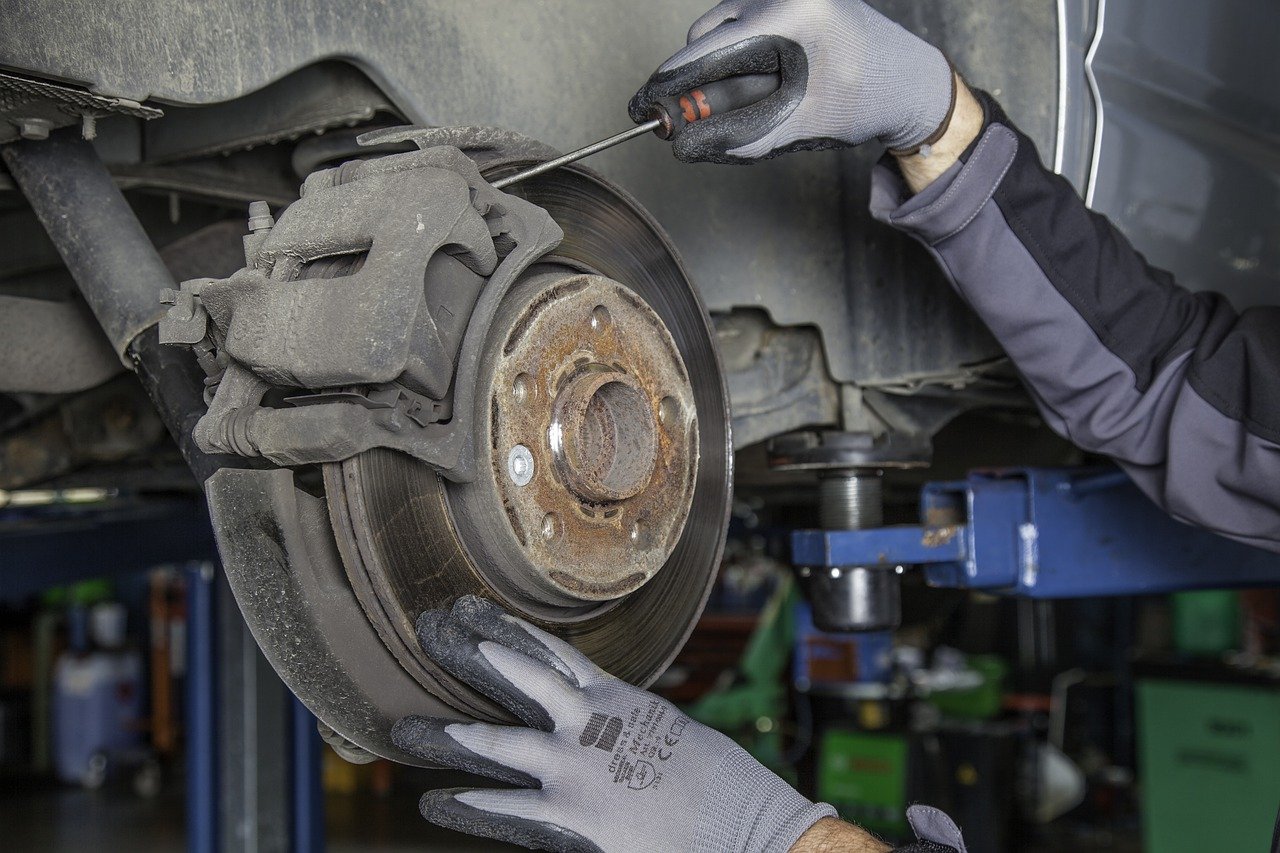How To Stop Brakes From Squeaking
Car owners constantly face problems while using their vehicles. While some problems are tolerable, others border on aggravation, and not just for the driver.

One such problem is squeaky brakes. How many times have you heard a deafening screech from a passing car while walking down the street? This is not only annoying beyond measure, but also means that something cannot be right with the vehicle.
Today we will talk about ways to tackle this problem. We explain how brakes work, give reasons for their squeaking and present some possible solutions.
How do brakes work?
Assuming you want to DIY-style the problem yourself, it’s important to understand how brakes work.
The braking system itself consists of three main components: rotor, caliper and pads. They signal the caliper whenever you press the brake pedal. The two pads, in turn, clamp onto the rotor or brake disc attached to the wheel. Slowing down the car’s forward movement.
Since brakes work by friction with the disc, it’s entirely logical that you’ll hear a faint noise. However, it shouldn’t be deafening, and certain factors can significantly affect that volume.
Here’s why your brakes squeak
Things aren’t that simple when it comes to finding the culprit for hard brake noise. Far too often it can be almost anything: bad weather conditions, heavy loads, moisture build-up, or even embedded objects. Loud squeaks can also be an issue in newly purchased vehicles.
If the squeaking isn’t unbearable, then you shouldn’t do anything about it. The problem may resolve itself without your active involvement. But if you think there is a real problem, the solution would need to be verified, and the methods would vary depending on your situation.
Squeak elimination
As mentioned above, solutions depend directly on what happened to the brakes. Some cases may be unique, but there are several common reasons for brake squeal as well. Here we’ve compiled four of those easy-to-find causes and ways to address them.
new cars
When you buy a new car, you may notice squeaky brakes. However, this does not mean that they are defective or need to be replaced. In all likelihood, you just need to embed them.
Breaking in means accelerating up to 60 mph and applying the brakes until you reach 10 mph. This process helps to thin out a layer on the pads and prevent braking problems. Repeat the process eight to ten times and this should eliminate the squeaking from your new brakes.
Only highly skilled drivers should sleep and if they do, make sure they are in a safe area.
Bad weather
If there has been heavy rain or snow in the past, the windows can collect moisture, causing a thin layer of rust to form on the surface. Using slightly rusted brakes will spin the disc and force the pads to remove the rust. Small rust particles could get caught on the edge of one of the pads, which can cause an annoying noise.
Unlike the previous solution, here you don’t have to do anything that requires a lot of caution or expertise. All you have to do is hit the brakes several times for the rust to go away. To prevent this, leave your car in a garage during inclement weather.
Thinning of the brake pads
Your brakes are constantly subjected to extreme pressure, friction and vibration, which will eventually wear them out. That’s why the manufacturers put soft metal parts in them. The metal parts make a squeaking noise as the brakes wear.
Once you are familiar with your car and feel confident, you should gather the right tools and follow these steps:
- Remove the wheel
- Use a degreaser to clean the breaks
- Remove the caliper
- Remove the brake pads from the caliper and install new ones
- Check the disc and brake line to make sure everything is fine
- If necessary, replace the caliper and clips
- Check the brake fluid level
- Put the bike back
Loose parts
Apart from the ones already mentioned, the braking system consists of many other components. One of the reasons for all that squeaking may be that one of those parts has come loose.
In this case, you should examine your vehicle thoroughly and check that all parts are firmly seated in the system. If you can move one of them, secure the bolt or screw and consider having your vehicle checked by a mechanic.
summary
Hopefully once you have completed the above steps your brakes will stop squealing. However, if you continue to have problems, we recommend that you have it checked at a service center. Regardless, we hope this guide has helped shed some light on how to assess and fix your squeaky brakes.